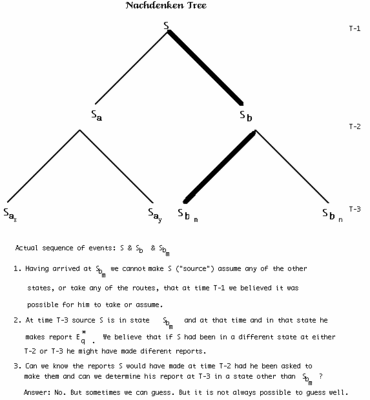Whether South Carolina's rule governing the admissibility of third-party guilt evidence violates a criminal defendant's constitutional right to present a complete defense grounded in the Due Process Confrontation, and Compulsory Process Clauses?See Holmes v. State, 2005 WL 770655 (March 31, 2005)(petition for writ of certiorari) and Holmes v. South Carolina, -- S.Ct. --, 2005 WL 770216 (Sept. 27, 2005)(granting petition for question stated above).
Holmes raises a variety of issues. Some of the issues in the case involve the razzle dazzle of forensic science, including DNA evidence and palmprint evidence. But such razzle dazzle is peripheral to the main issues presented by Holmes' successful petition for Supreme Court review; the important issues are quite traditional and have little or nothing to do with technology.
Try as it might -- and try it probably will -- the Supreme Court will not be able to entirely avoid two broad questions:
1. What is the relationship between the due process guarantee of fair trial -- which, the Court has said or suggested, encompasses a guarantee of trial rules and procedures that are likely to produce a high degree of factual accuracy in criminal trials -- and nonconstitutional rules of evidence. (Some members of the Court may fall prey to the temptation to refer with scorn to the proposition [advanced by whom?] that the due process clause constitutes a code of evidence.)Other grand issues -- even broader than the two I have just mentioned -- are presented by Holmes. But I will restrain myself and I will not mention them now. But I feel compelled to mention one additional question. Holmes does arouse (in my breast) one nagging suspicion or question:2. Does the due process guarantee of proof beyond a reasonable doubt have any meaning in the absence of constitutional rules guaranteeing that an accused will have an opportunity to submit evidence of innocence if such evidence meets some threshold of probative value? (Some members of the Court may fall prey to the temptation to rely again on the hypertechnical argument that the due process guarantee of proof beyond a reasonable doubt standard speaks only to the way that the trier of fact should evaluate admissible evidence, and not to the question of the kinds of exculpatory evidence that must be admitted in a criminal trial. [The theory here is: The scales are heavily tilted against the prosecution but the reasonable doubt requirement does not prohibit the prosecution from preventing the accused from placing some of his heavy stones on the scales of justice.])
What is the true reason for the persistent tendency to impose sharp limitations on attempts by criminal defendants to show their innocence by introducing evidence of the guilt of third persons? Are these limitations imposed to avoid the waste of time and resources? Or do the restrictions on such evidence grow out of the fear that juries will often -- too often -- find such evidence persuasive?But if the last reason is the true motivation for restrictions of third-person guilt, is the fear justified? Why should jurors have any more difficulty assessing this sort of evidence than they have assessing any other sort of exculpatory evidence?
The suspicion that juries will fall prey to manufactured evidence of third-person guilt is puzzling: juries as well as judges can and will use their common sense and their ingrained skepticism when they evaluate "admissions" of guilt by jailbirds and other suspicious characters. So what accounts for the unusually stringent limitations on such exculpatory evidence?
Is the persistent suspicion of evidence of third-person guilt somehow rooted in an unspoken belief that assessment of such evidence normally involves after-the-fact assessments of failure to investigate and that such post hoc assessments of whether an investigative road not taken should have been taken are very, very difficult, so difficult that triers such as jurors will make too many mistakes about such questions?

No comments:
Post a Comment